Wahrmund Farms is a cattle ranch nestled at the base of Petit Jean Mountain. John and Rhonda Wahrmund have over 5,000 acres of pasture and corn and run approximately 2,500 head of cattle. They have found themselves uniquely capable of selling beef to multiple school districts across the state, and pair that with a storefront in downtown Morrilton. We recently had the opportunity to ask the Wahrmunds about their operation.
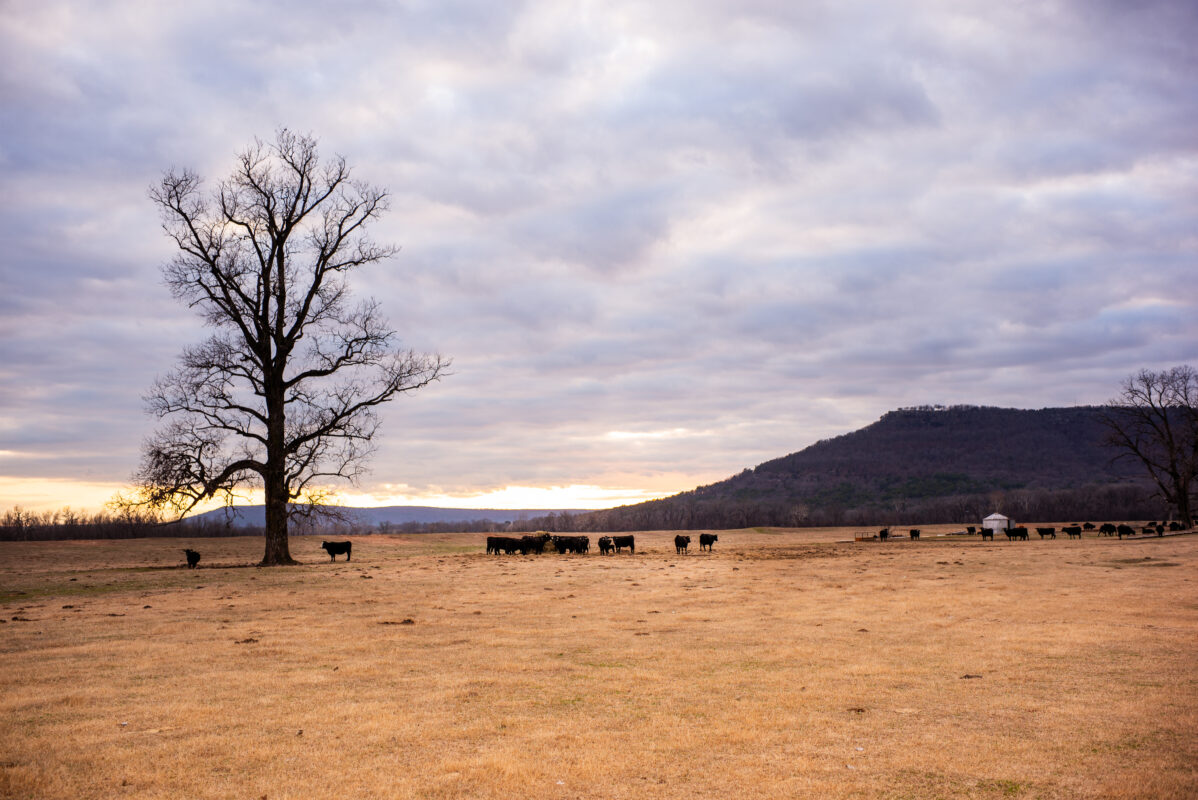
Q – What is the history of Wahrmund Farms?
John – When my dad was a teenager, his family farmed in Fredericksburg, Texas. The droughts in the early fifties pushed them off their farmland. That’s when they moved the family to Conway County, which is still where we live today. We are fifth-generation farmers here in Conway County. The fifth-generation being two months old by the way! But that’s where it started.
My dad had three brothers and a sister and, along with their parents, they had a small dairy farm. Then in ‘77, my mom and dad built a dairy barn of their own and we milked dairy cows there for over 40 years. It was October 2018 when we milked the last cows here on the dairy farm.
Q – What caused you to pivot to a beef herd?
John – It just got to the point where the dairy business got so big with the mega-dairies out West, that the small dairy farmer, especially the small dairy farmer here in Arkansas, just was struggling to survive in the industry. Most of the infrastructure moved out of here and went to where the mega-dairies are. Then with the dairy prices, along with other expenses, it just became a dying business for us.
I saw that coming, back, well before 2018, I knew in my mind that the future of the dairy business was very short coming for my family. So back in 2010, we peaked out milking over 400 cows. I was breeding all my dairy cows by artificial insemination at that point and I started purchasing angus semen and using that to slowly breed out of my dairy herd.
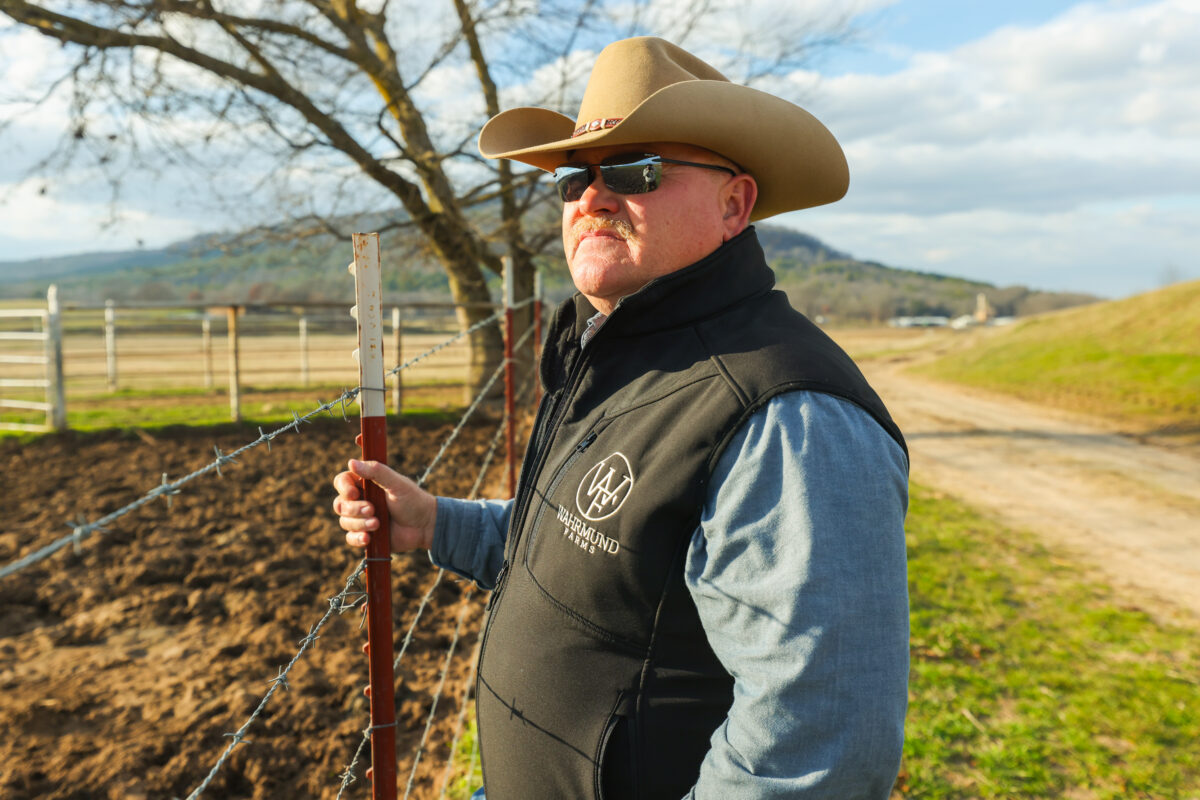
I started getting half breeds and, with those cattle, I started forming a beef herd. I would continue to breed my top 25% dairy cows with dairy semen, so my replacement numbers were drastically reduced year-after-year. It got to the point in 2018 that we were down to milking just a little over 100 cows and that’s when we stopped milking. I sold the cows and went straight beef.
Q – What does the farm look like now that you are only in beef production?
John – In the beginning of 2014, I came down to the River Valley, leased this farm and began to further increase my footprint in beef cattle, to the point where we are today. We have this place here on the north side of the Arkansas River, but we also farm the Rockefeller property that’s over on the south side of the river. All together we currently farm over 5,000 acres.
We run 1,000 head of mama cows and we keep 1,500 to 2,000 yearlings on feed year-round. We have the size and capacity to do a lot of cattle, a lot of beef. We’ve worked hard to obtain the cold storage to keep a steady inventory so we can supply big orders as they come in. When you get a call from somebody wanting product, they want it that day, they don’t want it next month or in three months. So, we really work hard to try to balance between not having too much inventory but having enough to accommodate orders as they come.
Q – You talk about big orders, who are you selling large quantities of beef to?
John– We currently sell beef to a lot of schools, not just here in central Arkansas, but we also go up into north Arkansas and just as far south and southwest as well. Bergman, North Little Rock, Brinkley and Centerpoint, just to name a few.
We’re getting all over the state of Arkansas and the sales that we’ve started making into the schools has been a positive change on our ranch. One, it’s a way for us to move a lot of secondary cuts. And two, it’s just the sense of satisfaction that you’re doing something good and you’re doing something that people appreciate.
I can’t tell you how many times that I’ve been at a school, or I’ve been out at a restaurant and a teacher or parent tells a kid, “Hey, he’s the guy that supplies those hamburger patties to your school” and that little six or seven-year-old kid looks at you and tells you how it’s the best hamburger he’s ever had. When you have someone say that to you, that doesn’t know you from Adam, you know, it really touches you. It gives you a huge sense of accomplishment and pride that the quality of product that you have is hitting home to these kids and that they appreciate it.
Q – Does the farm to school movement translate to kids learning about farming?
John – We have some posters that have our farm name on them that the cafeteria workers have asked us to bring, so that kids know that their hamburger or their beef comes from Wahrmund Farms. I think it helps start the conversation of where that food came from.
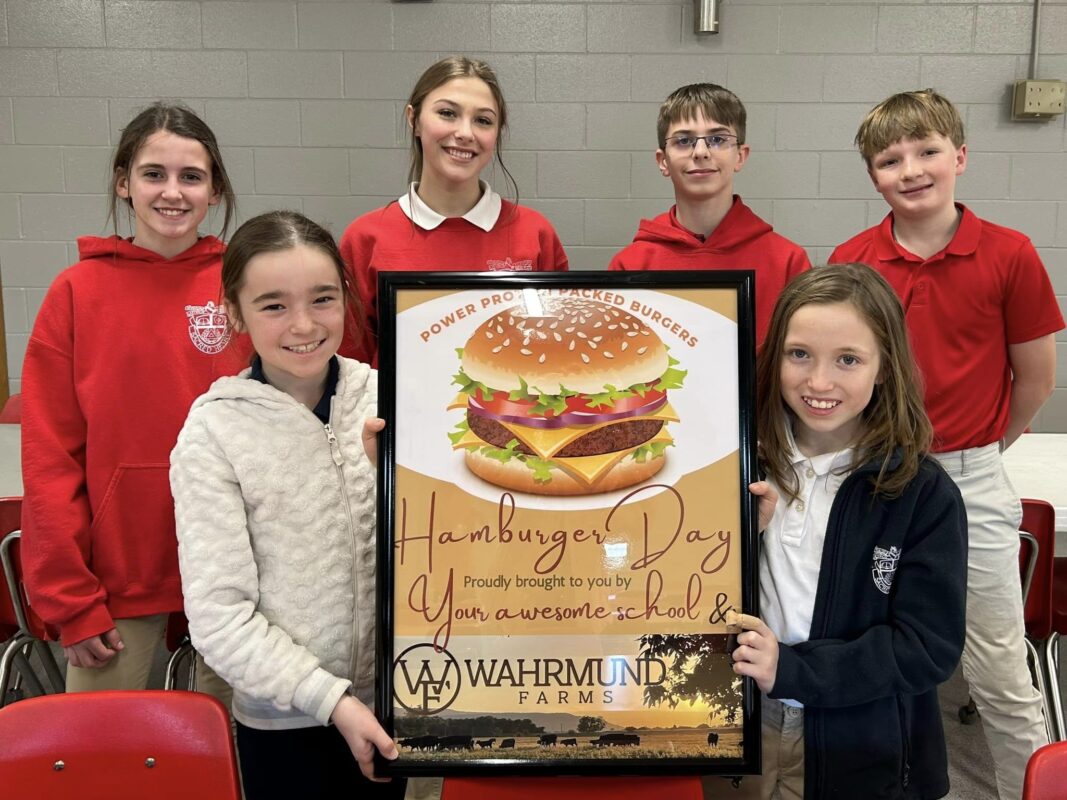
Rhonda – Working with schools and school nutritionists has really impressed upon us the importance of moving toward getting kids out to the farm. I think it’s great that we can bring farm to them, to their lunch menu, but getting them out on the farm to see how we feed cattle, how we take care of livestock, how we plant crops and take care of the land is the goal. In the next year the plan is to start having field trips for kids out on the farm.
John – We’re also hoping to offer a farm camp in the summer. Which hopefully will allow some kids to come out for a few days and just live on the farm. It’s one thing to come out here for a three-hour field trip but if they got to spend several days at the farm, that’s when they’ll get a true appreciation for farming.
Q – What made you open a storefront in Morrilton?
John – We were selling so many of our secondary cuts in the form of ground beef or fajita meat to the schools, and that left our primal cuts moving slower. We acquired several restaurants that were using our primal cuts, but still, we were needing to increase the demand for our steaks. So, about two months ago we opened the store in downtown Morrilton to be a good way to balance the demand for the primary and secondary cuts. It’s just called Wahrmund Farms, because that’s obviously who we are.
That’s the one thing that’s key to making it in my particular business, you’ve got to sell the whole cow. You can’t just sell the ground beef off a cow, and you can’t just sell the steaks off a cow. You’ve got to find a balance.
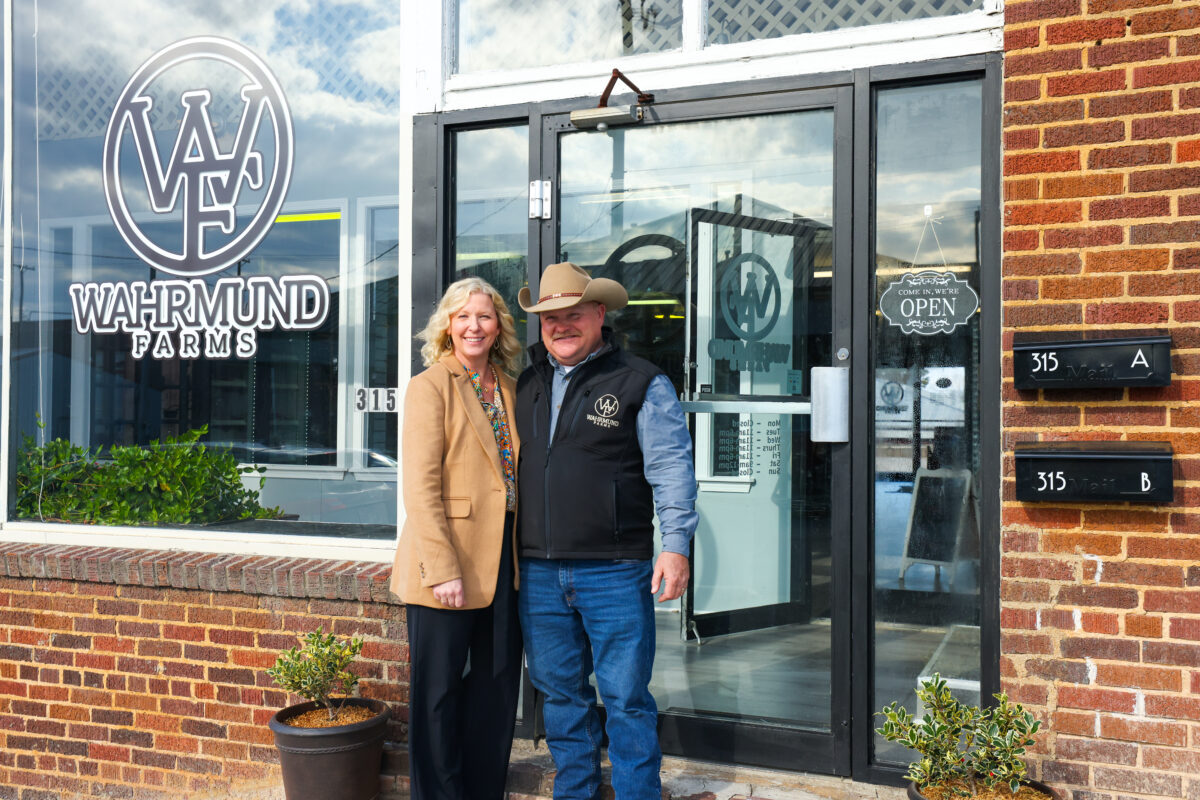
Q – Do you grow your own hay and feed?
John – So here on our ranch, we strive all the time to be as self-sufficient and integrated as we can. That helps us to keep our costs down on the products that we sell, to be as competitive as we can in the marketplace.
We grow all the hay that we feed our cattle. I also have about 400 acres of grass under center pivot. Which helps in drought-stricken years to be able to bridge the gap to that next rain. And every year we grow 600 to 800 acres of corn, at least half of that we chop and put it in a form of corn silage that we keep on hand to feed our cattle year-round. The rest of our corn we combine to put in grain bins and use that weekly to supplement our feed rations.
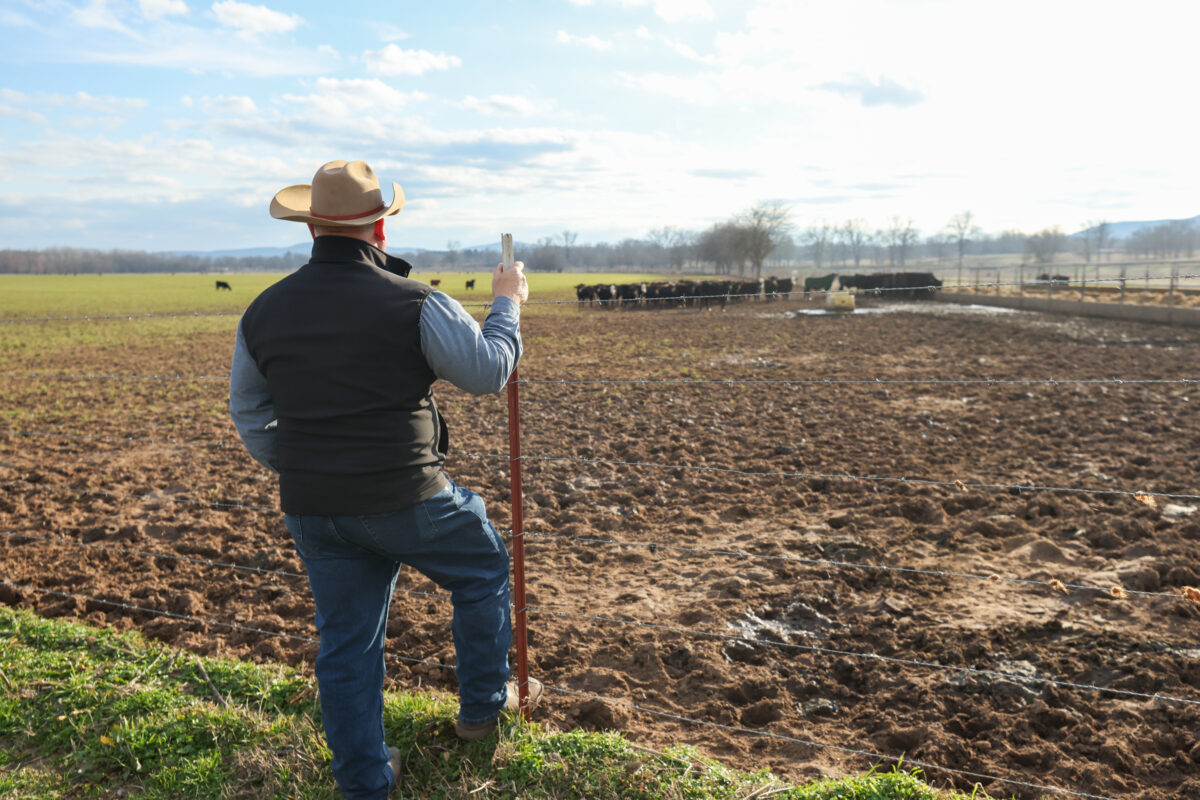
So really the only thing that we buy that we feed our cattle is our mineral vitamin and protein packages. Otherwise, everything else that we use, we grow ourselves right here.
Q – This all sounds like quite a bit of work, is it mainly you and your family working the farm?
John – Yes, it’s primarily my family and I think that really sets us apart, we are a family farm. I have six children and of course Rhonda, all of them work extremely hard on the farm doing their part. My wife is a part time high school teacher, but she also runs and operates the store along with my oldest daughter who’s a pharmacist too.
Three of my sons are college graduates and are here on the ranch full time. One of them currently has applied to vet school. I also have a daughter that’s a senior and a son that’s a junior in high school and both do their part on the farm as well.
One thing that sticks out and makes our family as special as I think it is, is the fact that nobody cares what task they do on a given day. Any of our children will go do any job, any day. You tell them “I need y’all to go build fence in that swamp today.” They don’t ask questions or push back on it, there’s none of that.
Rhonda – They just plow in and get it done, and if someone needs to be off, everybody just says, “Okay, what needs to be done? How do we make this work?” And, you know, everybody here works a little bit more to make up for the one that’s gone. It’s never a problem. Everybody just pitches in and gets it done and that kind of cooperation, respect and love for each other, it’s enjoyable.
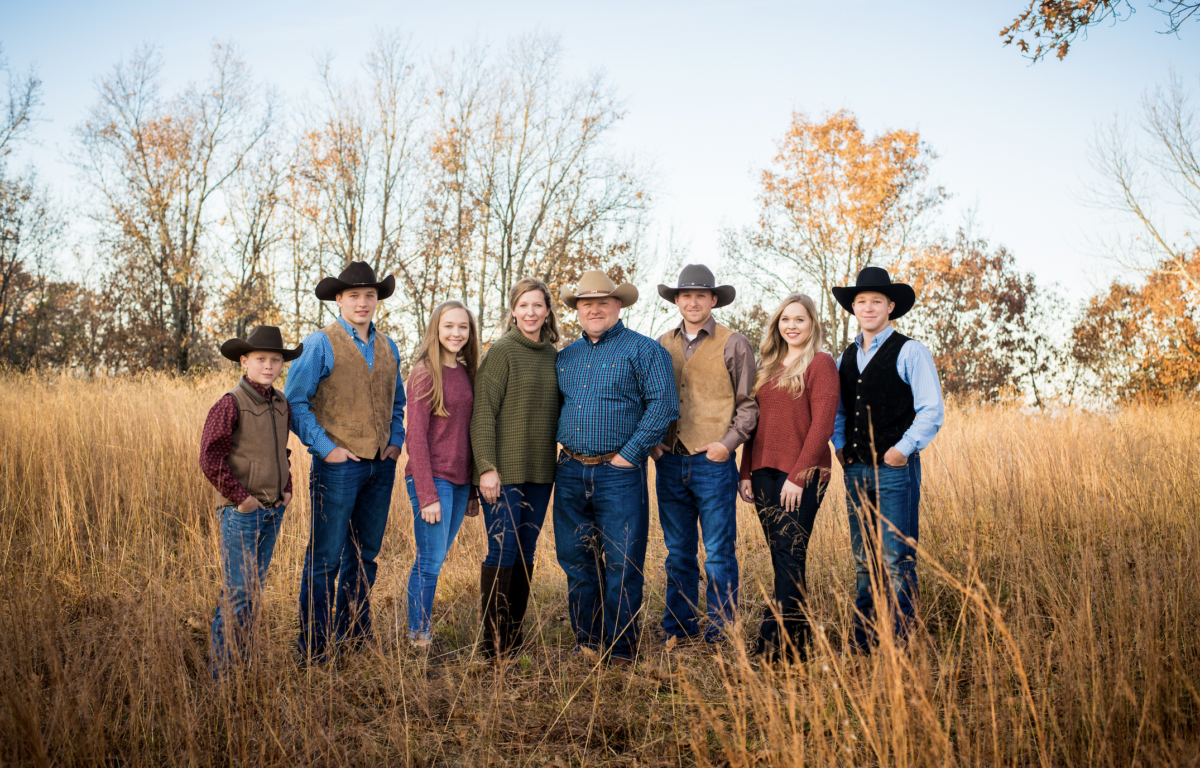
Q – Final question, what’s the one thing you each would want someone to know about your operation?
Rhonda – Farming is something we’re passionate about as a family. One of the great things is that we all get to work together. I get to see my kids every day, I get to work with my husband, and we all get to spend time together on the farm.
John – We have such a strong passion for farming, for cattle farming, for the crops that we grow, the grass that we grow for our cattle. The true compensation that we get for what we do is when that young kid thanks you for the beef and how good it was. It’s when your next-door neighbor or a restaurant owner calls to tell you how good those steaks were. That’s what validates the time, the labor and the obstacles that we endure day to day and season to season. It makes it all worthwhile.
If you’re interested in trying beef from Wahrmund Farms stop by their storefront in downtown Morrilton, or shop online at Wahrmund Farms. You can also find them on Facebook and Instagram by searching Wahrmund Farms.
Interested in the sights and sounds of Wahrmund Farms? Check out our video profile on them!